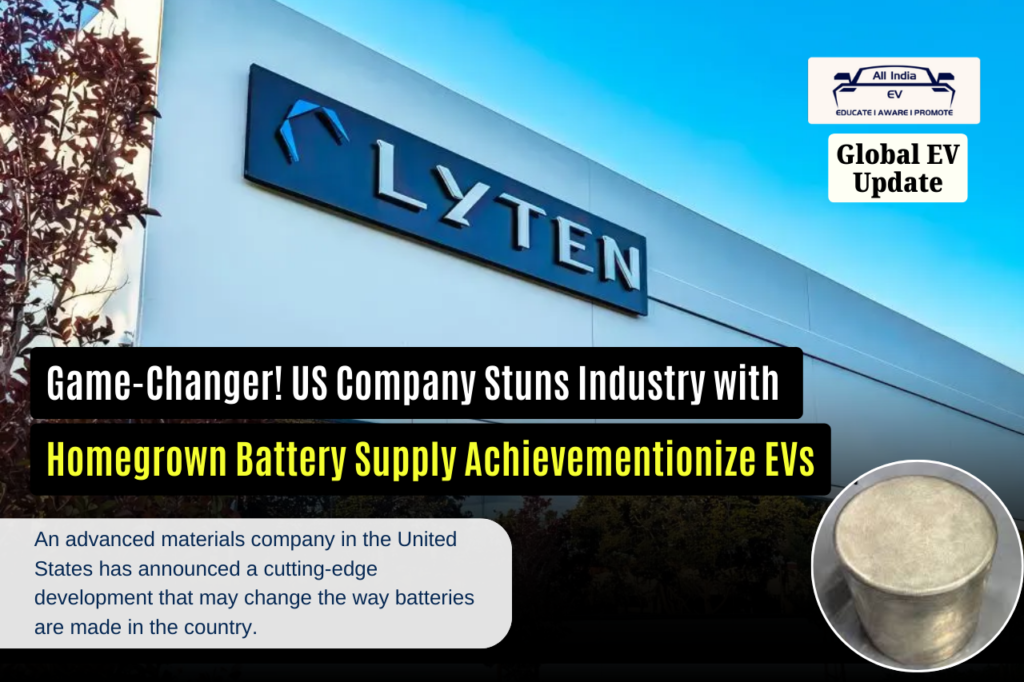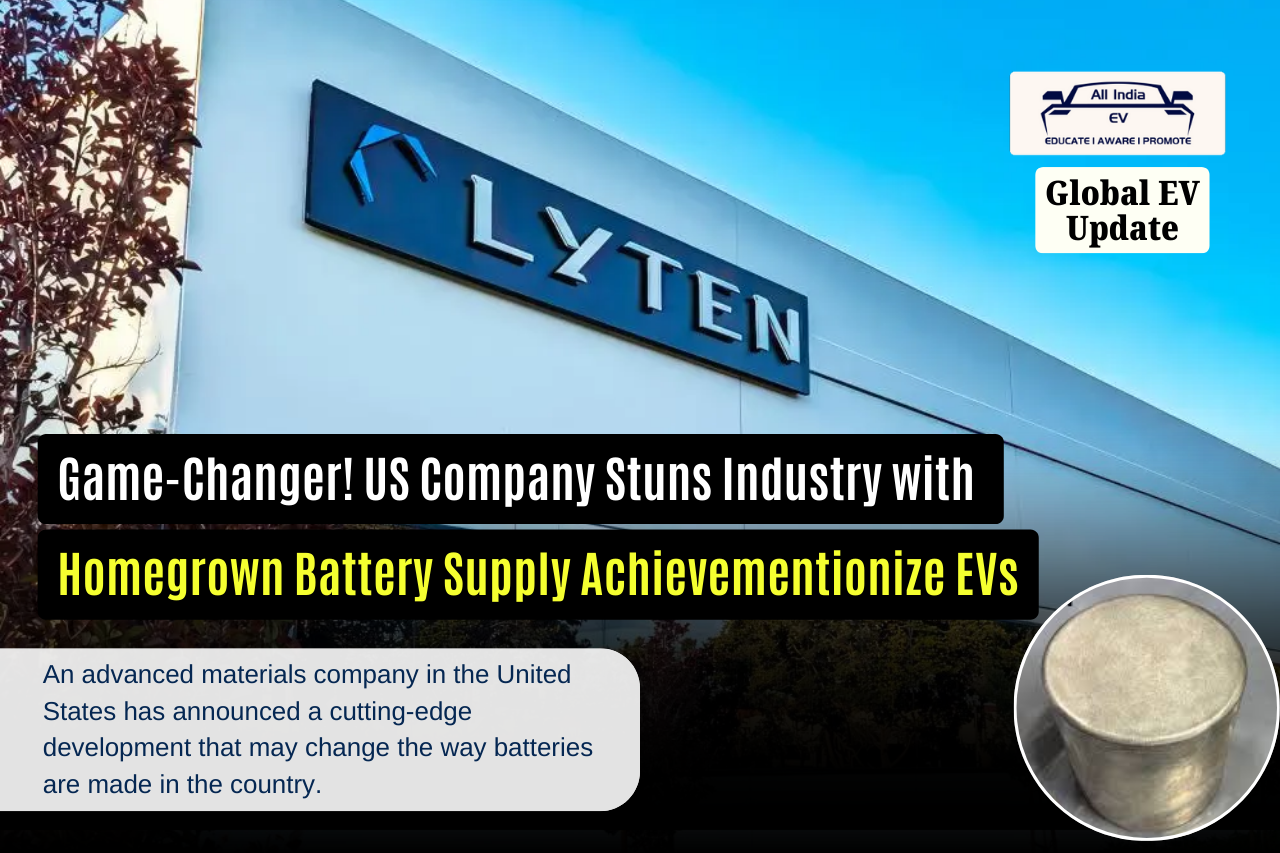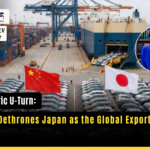
Game-changing lithium-sulfur innovation could reshape global EV battery supply
In a major boost to local manufacturing and clean technology, California-based Lyten Inc. has announced a breakthrough in next-generation lithium-sulfur battery production, claiming it can now manufacture batteries without relying on foreign-sourced critical minerals. The announcement is being seen as a milestone for energy independence and a potential disruptor in the EV battery market.
🔋 Why Lithium-Sulfur Is a Big Deal
Lithium-sulfur batteries are emerging as strong alternatives to traditional lithium-ion cells. They offer:
- Higher energy density
- Lower production costs
- Lighter weight and greater efficiency
Lyten’s development allows the production of these advanced batteries using locally sourced lithium-metal alloys and foils, significantly reducing reliance on Chinese battery components and imports.
🌍 China Still Dominates Global Battery Market
A recent report from the International Energy Agency (IEA) highlights the global battery landscape:
- China: ~55% of total global demand (2023)
- European Union & U.S.: ~15% each
With China dominating battery-grade material supply chains, Lyten’s innovation could shift some of that balance by encouraging domestic U.S. manufacturing.
⚙️ Manufacturing Advantage Amid Global Tariffs
Post the U.S. tariffs announced under the Trump administration, battery manufacturers have been looking for cost-effective and tariff-free alternatives. Lyten’s locally manufactured solution offers a timely response by:
- Reducing foreign dependency
- Lowering costs for consumers
- Avoiding global supply chain disruptions
♻️ A Win for Sustainability and Innovation
By eliminating the need for imported materials, Lyten also contributes to eco-friendly battery production. The company joins a global push — including efforts in Finland to reuse pine tree waste for battery materials — toward more sustainable energy storage solutions.
“Lithium is abundantly available across the United States, but the capacity to process lithium into battery-grade materials is extremely limited,” said Celina Mikolajczak, Chief Battery Technology Officer at Lyten.
“Being able to design and process our own lithium-metal alloys and foils is a game-changer.”
🔮 What This Means for India and the EV World
Lyten’s breakthrough showcases how local innovation in battery tech can lead to cost savings, supply stability, and greener manufacturing — lessons highly relevant for India’s growing EV ecosystem. As India pushes for Make-in-India solutions and reduces battery import dependency, lithium-sulfur advancements may shape the future of EVs here too.










